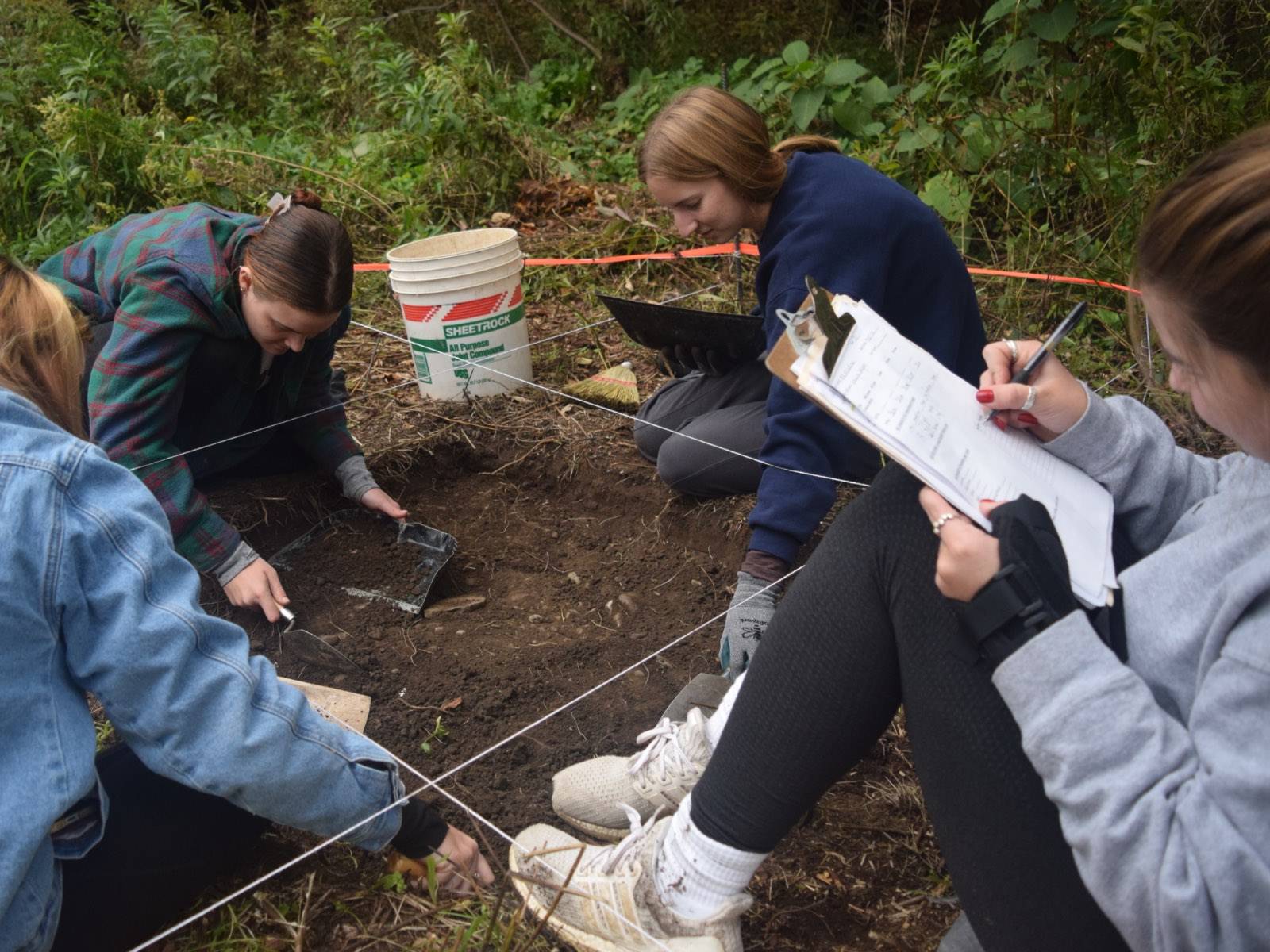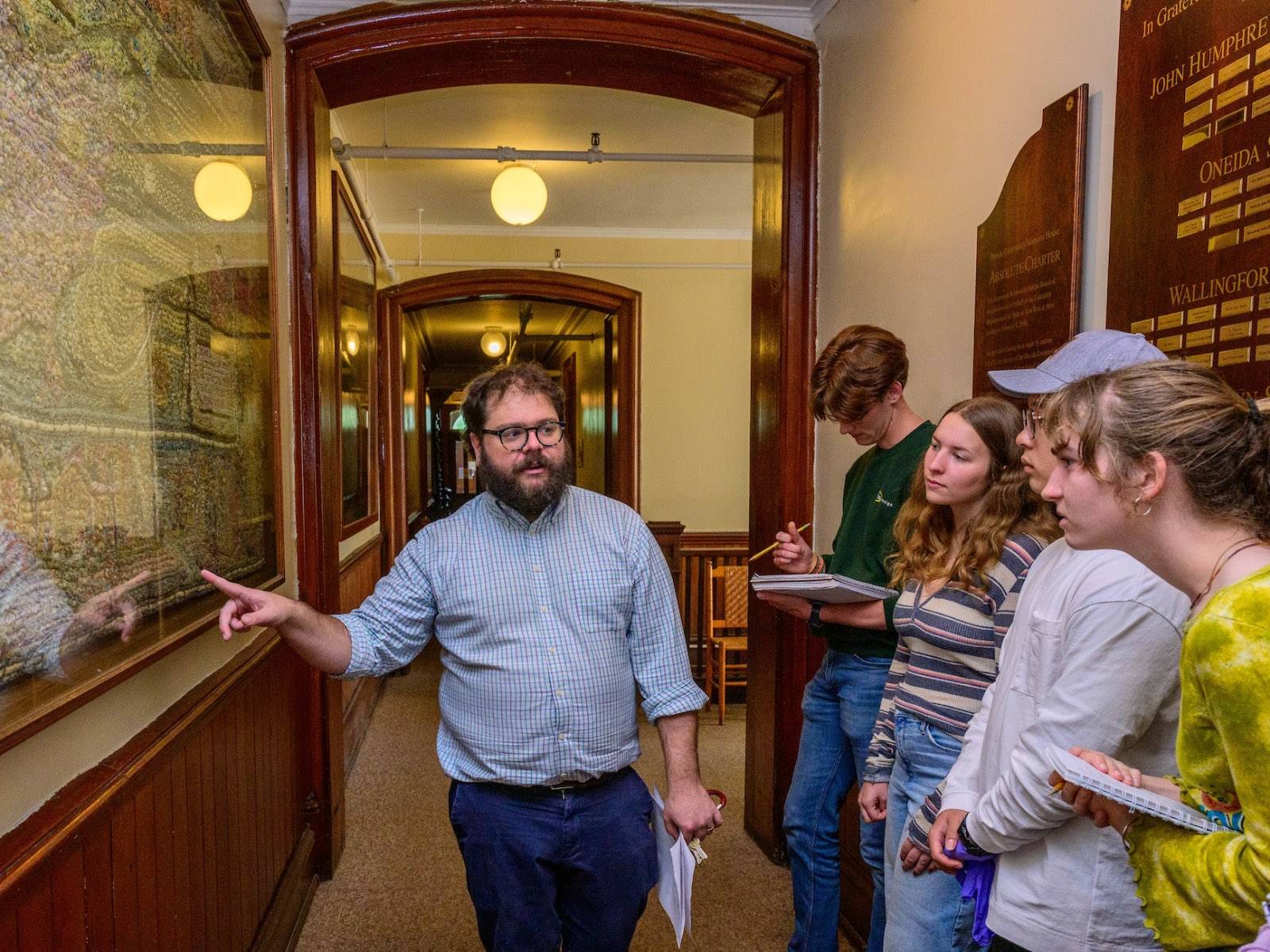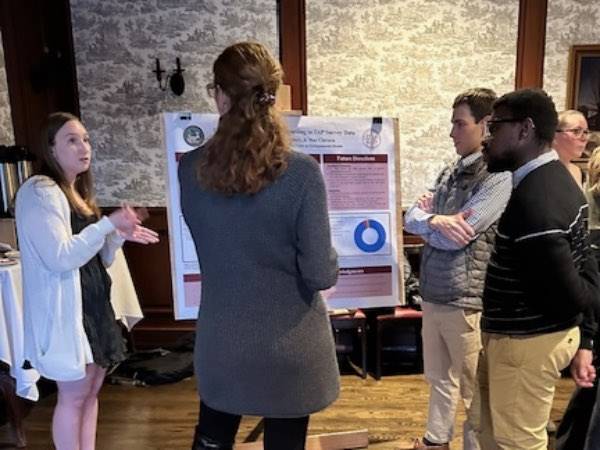Interested in teaching a course focused on community-based research and engagement? The Upstate Institute’s course development grants help faculty design courses to create student research opportunities that benefit the community.
Create Courses Focused on Community-Based Research
Applications for 2025-2026 are due November 7, 2025.
The Upstate Institute, in partnership with the Office of the Dean of the Faculty, provides grants to support Colgate faculty in the development of courses that address a significant community-identified need and incorporate community-based research experiences for students as a means of examining the complex dynamics of the region. The proposed course may be new or a substantial redesign of an existing course. Faculty are encouraged to imagine how their research field and the courses they teach might be relevant to upstate communities, and how the material they teach might be enriched by the opportunity for students to engage in community-based research.
Course Options: Single or Team Teaching
- Support for a course taught by a single instructor, with a one-time stipend of $4,000 to support course development.
- Support for a course team-taught by two instructors. Each faculty will receive a one-time stipend of $1,000 to support course development and will each receive one full load credit for their full participation in teaching, attending, grading, and participating co-curricularly in the course. Proposals that team faculty across divisions or disciplines are encouraged, as are proposals that effectively realize and build on the pedagogical value of integrating community-based research. Team-taught courses will be supported with a full load credit for each participating faculty member for the first two iterations only; instructors may reapply for full credit support after the course has been taught twice. Otherwise, further iterations of the course may be taught for 1⁄2 credit per instructor.
Course Proposal Requirements
- Course will be taught at least two times over the next four years.
- The proposed budget for course implementation costs will be vetted by the staff of the Upstate Institute in consultation with the Office of the Dean of the Faculty.
- The community-based research component should include a substantive outcome for the community organization with which the students work.
- Students should be given a substantial community-based research project and be asked to critically reflect on their experiences with community engagement.
- If a course selected for an award is new to the curriculum, instructors must then submit it to the Curriculum Committee for approval.
- The applicant(s) will be expected to share the results of their course development work with others through various media, and should be prepared to work with the Upstate Institute on a plan for course assessment.
- While not a requirement of the program, proposals that creatively combine interests in community engagement with the goals of other Colgate course development grant opportunities will be favorably considered.
- Members of the Upstate Institute Executive Board will review proposals. A list of members of the Executive Board is available here.
In addition, successful applicant(s) may request funds of up to $4,000 per course from the Upstate Institute each of the first two times that the course is taught; these funds are meant to support expenses related to the course, such as local travel, supplies, equipment, or guest lecturers.
Application and Additional Information
Applications are due November 7, 2025.
The Upstate Institute welcomes conversations about potential courses and the type of support our office can provide. Applications can be made to the Upstate Institute as outlined in our Course Development Grant Guidelines, accessible through the button below.


